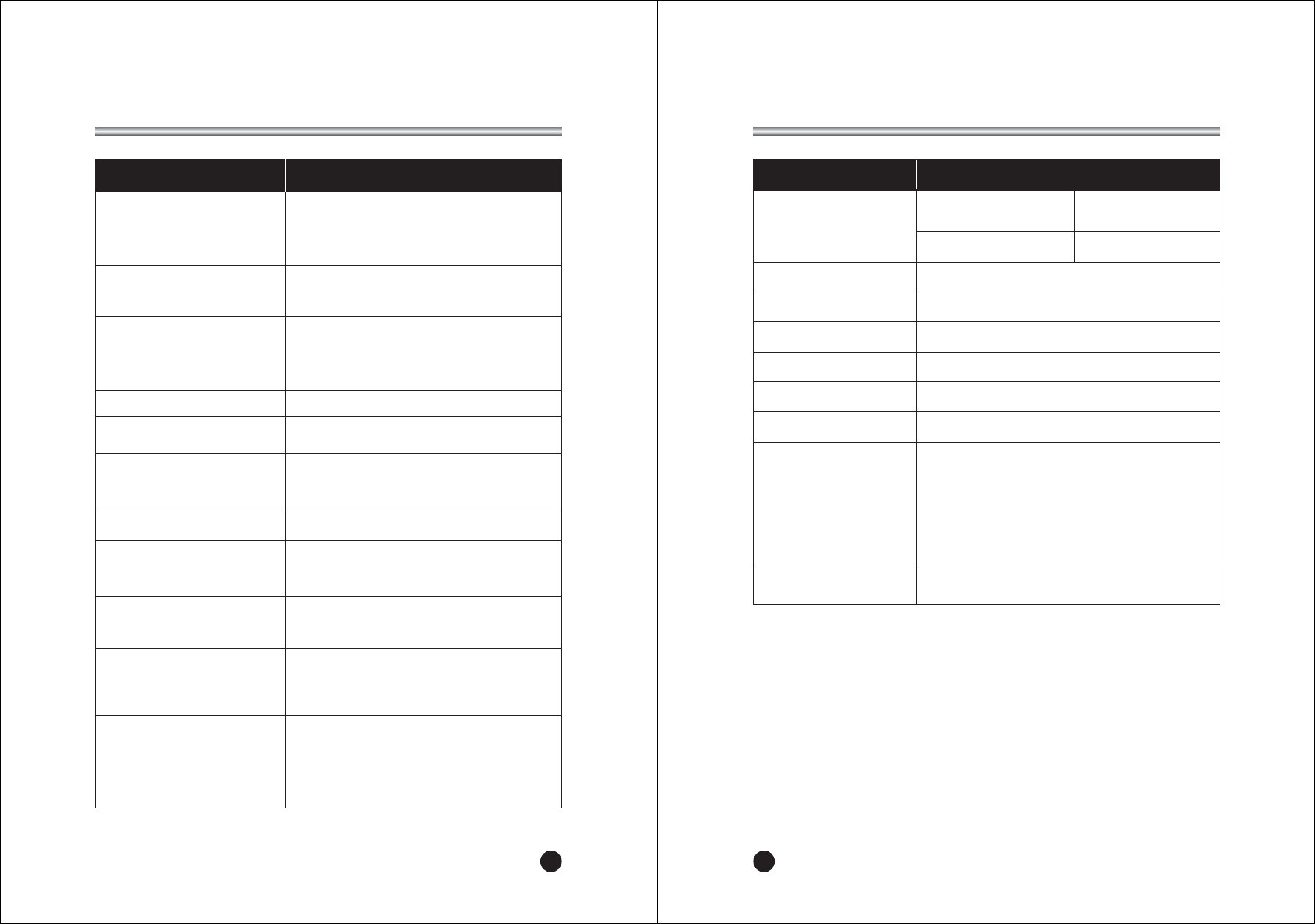
26
Product Spec.
Model NLT-40W
Main body
Horizontal size 1085 mm Thickness 110(280) mm
(With stand) Height 632(704) mm Weight 28.5(33) kg
Television system PAL-BG, I, DK / SECAN-BG DK / NTSC-M
Television programme VHF: 2~13 UHF: 21~69 Cable: S1~S41
LCD Panel 40” wide TFT LCD panel
Power consumption 220W
External antenna impedance 75Ω
Audio output 10W + 10W
• DVI-IN 1 • S-VIDEO IN 1
External IN/OUT ports
• HEADPHONE JACK 1 • PC IN 1
• PC AUDIO IN 1 • COMPONENT 1
• ANTENNA IN 1 • D-TV IN 1
• SUB WOOFER OUT 1
AC Power AC 100-240V, 2.5A-1.5A, 50/60Hz
27
Troubleshooting
No picture on screen and no sound
from speakers.
No picture/No picture from AV
terminal.
Picture is displayed, but no sound
from the speakers.
Picture is too light
There are stripes on the screen or
colors fade.
Picture is too dark.
Remote control does not work.
No picture from AV OUT terminal.
The picture is not sharp.
The picture moves.
The picture is doubled or tripled.
The picture is spotted.
• Make sure the LCD TV is not in the standby mode
(The POWER/Standby indicator is red.)
• Turn on the MAIN POWER button on the top of the
display.
• Check the brightness setting of the display.
• Lamp may have malfunction.
• Check the sound setting.
• Make sure the sound is not muted.
• Make sure the connectors of the optional speaker
system are securely inserted.
• Make sure COLOR and CONTRAST settings.
• Is the unit receiving interference from other devices?
Transmission antennas of radio broadcasting stations
and transmission antennas of amateur radios and
cellular phones may also cause interference.
• Use the unit as far apart as possible from devices
that may cause possible interference.
• Make sure BRIGHTNESS setting is not set too low.
• Check to see if BRIGHTNESS setting
• Lamp may have malfunction.
• Change the batteries.
• Make sure the infrared transmitter window is not
receiving strong light such as light from fluorescent
lamps.
• Make sure AV INPUT is not set.
• Make sure the input source other than AV
• The reception may be weak.
• The state of the broadcast may also be bad.
• Make sure the antenna is facing the right direction.
• Make sure the outside antenna is not disconnected.
• Make sure the antenna is facing the right direction.
•There may be reflected electric waves from
mountains or buildings.
• There may be interference from automobiles, trains,
high voltage lines, neon lights, etc.
• There may be interference between the antenna cable
and power cable. Try positioning them further apart.
Check item
Problem
















